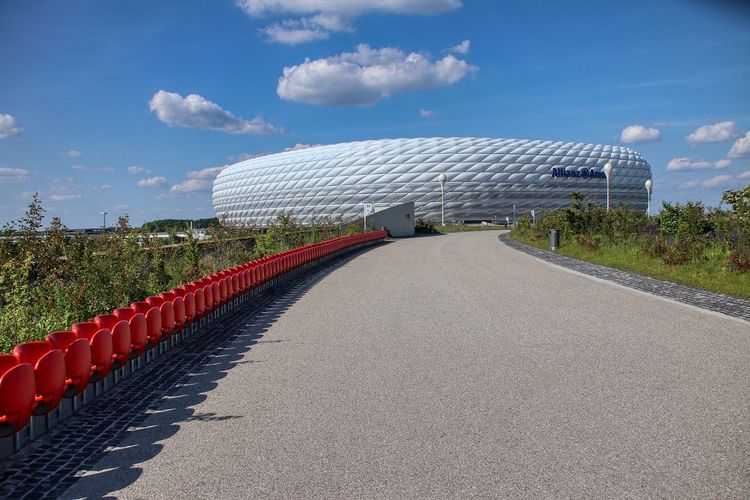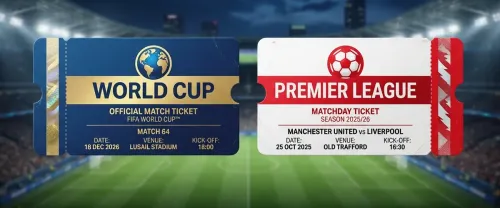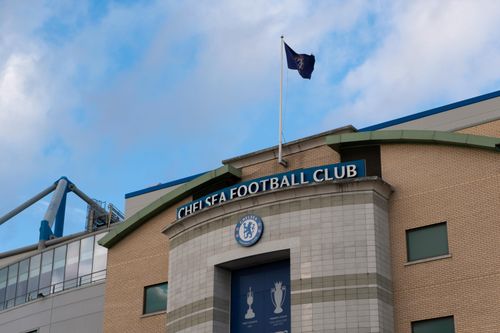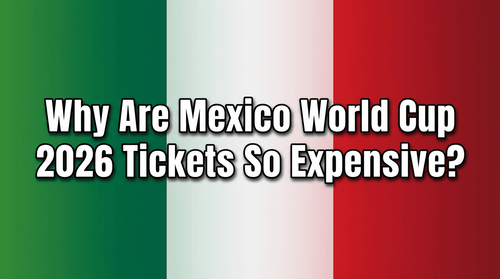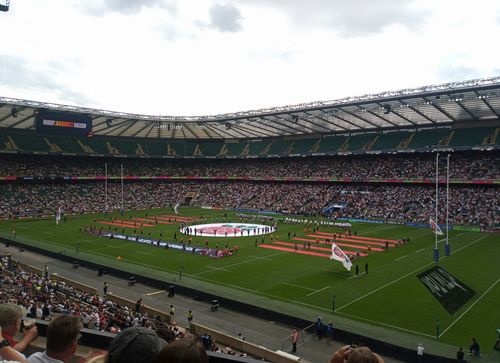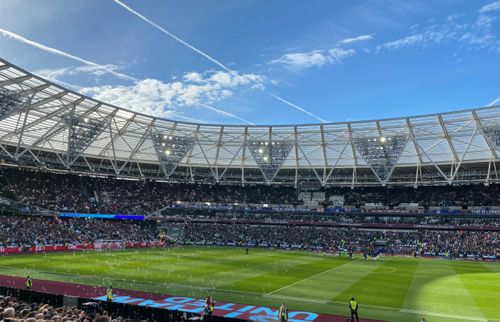What Stadiums Are Being Used for Euro 2024?
- Last Updated On
- Dov Rawson
It won’t be long until Euro 2024 kicks off in Germany, with 24 nations preparing to fight it out on the international stage.
Germany qualified as hosts and are the most successful team in the history of the European Championship finals. Despite that, England and France are considered the two favourites for the month-long tournament.
The competition will be held across ten cities, with some iconic stadiums preparing to host matches at this summer’s tournament. Continue reading to learn what stadiums are hosting Euro 2024 matches.
The Ten Host Cities and the UEFA Euro 2024 Stadiums
Unlike Qatar two years previously, Germany already had a good infrastructure in place to host a major football tournament. No new venues have been built for Euro 2024, with the Germans instead relying on stadiums that were either built or renovated ahead of the 2006 World Cup.
Don’t be alarmed if you don’t recognize the names of some of the stadiums. The UEFA executive committee renamed eight of the ten stadiums, due to sponsorship issues.
Without further ado, let’s take a closer look at each of the ten Euro 2024 stadiums.
Berlin: Olympiastadion Berlin (Capacity: 71,000)
The Olympiastadion Berlin is the biggest stadium of the ten and will host the Euro 2024 final on July 14th. In 2006, the venue hosted the FIFA World Cup final, before hosting a UEFA Champions League final nine years later.
📷⤴️#OlympiastadionBerlin pic.twitter.com/HTuoIXXuwF
— Olympiastadion Berlin (@Oly_Berlin) April 2, 2024
During the group stage, fans will descend on the venue in huge numbers to see Spain vs Croatia, Poland vs Austria, and Netherlands vs Austria. Berlin’s iconic Olympiastadion has also been chosen to host one last-16 match, one quarter-final, and the grand final.
Munich: Munich Football Arena (66,000)
Better known as the Allianz Arena, the Munich Football Arena is set to host the opening match of the UEFA European Championship between Germany and Scotland. Other group matches being held in the stadium include Romania vs Ukraine, Slovenia vs Serbia, and Denmark vs Serbia. A Round of 16 match and one of the semi-finals will also take place at the Munich Football Arena.
While Berlin is the capital famed for its top tourist attractions, Munich is a fantastic city known for its art galleries, parks, and beer gardens. Football fans are heading to Germany hoping to cheer their nation to victory, but they might as well soak up a little culture during their stay.
Cologne: Cologne Stadium (43,000)
The RheinEnergie Stadion will be known as the Cologne Stadium at Euro 2024. The venue will host four group games – Hungary vs Switzerland, Scotland vs Switzerland, Belgium vs Romania, England vs Slovenia – as well as one last-16 matchup.
Cologne is a magical city renowned for boat cruises and the Cathedral Church of Saint Peter, a UNESCO World Heritage Site.
Dortmund: BVB Stadion Dortmund (62,000)
The Signal Iduna Park has been renamed BVB Stadion Dortmund for this summer’s tournament. The capacity has also been reduced because UEFA requires all the stadiums to be all-seated. There are four exciting group games taking place at the BVB Stadion Dortmund: Italy vs Albania, Turkey vs Georgia, Turkey vs Portugal, and France vs Poland.
⚫️🟡 Stadion Dortmund 🏟️🤩#UCL | @BVB pic.twitter.com/HDl2rQYfyg
— UEFA.com DE (@UEFAcom_de) January 26, 2024
The iconic Borussia Dortmund stadium will also host one Round of 16 match and a semi final.
Düsseldorf: Düsseldorf Arena (50,000)
The Merkur Spiel-Arena, home to Fortuna Düsseldorf, has been renamed the Düsseldorf Arena for this summer’s tournament. The stadium was built at the beginning of the 21st century, but was not used for the 2006 FIFA World Cup.
Three Euro 2024 group stage matches will be held at the Düsseldorf Arena: Austria vs France, Slovakia vs Ukraine, and Albania vs Spain. It will also host a Round of 16 match and a quarter-final.
Gelsenkirchen: Arena AufSchalke (50,000)
The Veltins Arena will this summer revert to its former name – Arena AufSchalke – for sponsorship reasons. Seven time German champions, FC Schalke 04, call this magnificent stadium their home.
And these are the stadiums where @England will be playing their #EURO2024 group games… 🧵
— German Embassy London (@GermanEmbassy) December 4, 2023
Serbia 🇷🇸 vs 🏴 England
📅 16 June
🏟️ Arena AufSchalke
👥 Capacity: 50,000
🏠 Home team: @s04_en pic.twitter.com/ogEyG4Ph7h
Serbia vs England, Spain vs Italy, and Georgia vs Portugal are all scheduled to go ahead in Gelsenkirchen, before the Veltins Arena hosts one more match in the Round of 16.
Frankfurt: Frankfurt Arena (47,000)
The Deutsche Bank Park will be known as the Frankfurt Arena this summer. The venue was originally built in 1925 and has undergone several renovations, such as the addition of a retractable roof.
Frankfurt is the business hub of Germany but plenty of locals will be renouncing their suits to attend one of the five Euro 2024 matches. Belgium vs Slovakia, Denmark vs England, Switzerland vs Germany, and Slovakia vs Romania will all take place at the Frankfurt Arena, as well as one Round of 16 match.
Hamburg: Volksparkstadion (49,000)
Hamburg’s Volksparkstadion need not change its name this summer. The historic stadium was rebuilt after being demolished in 1998 and was selected as one the venues for the 2006 FIFA World Cup.
5️⃣ Matches in Hamburg at EURO 2024
— HSV English (@HSV_English) May 10, 2022
The UEFA Executive Committee has announced the match schedule for EURO 2024: The Volksparkstadion will host four group matches and one quarter-final 🏟
Read more here ⏩ https://t.co/SLtVGwM4KQ#nurderHSV #EURO2024 pic.twitter.com/TTQfhHFAZw
This summer, the Volksparkstadion will welcome fans from all over Europe. A sell-out crowd is expected for each of the four Euro 2024 group stage matches at the venue: Poland vs Netherlands, Croatia vs Albania, Georgia vs Czechia, and Czechia vs Turkey. The stadium will also host a quarter-final on July 5th.
Leipzig: Leipzig Stadium (40,000)
The Red Bull Arena is the smallest venue at Euro 2024 and is set to be called the Leipzig Stadium during the months of June and July. Three fascinating group games are set to be held in Leipzig, with plenty of world class talent set to grace the pitch.
Portugal and Cristiano Ronaldo will play Czech Republic in their opening group game, Netherlands will face France, and Croatia will go toe-to-toe with Italy. The Leipzig Stadium will also host one Round of 16 clash.
Stuttgart: Stuttgart Arena (51,000)
The Mercedes-Benz Arena will be known as the Stuttgart Arena this summer. It’s set to host one quarter-final match and four group stage games: Slovenia vs Denmark, Germany vs Hungary, Scotland vs Hungary, and Ukraine vs Belgium.
Stuttgart is a major industrial city in West Germany that has hosted matches on the continental and international stage. It hosted the European Cup final in 1998 and the 2006 World Cup third-place play-off. Interestingly, there will be no third-place play-off at Euro 2024.
Buy Your Euro 2024 Tickets on SeatPick Today
Excitement has been building ever since the final tournament draw took place in December 2023. Fans could apply for tickets either through UEFA or through their national federation portals, but many were unsuccessful in the ballot.
SeatPick stands as a perfect alternative, presenting a wide range of Euro 2024 tickets from a variety of trusted ticket sites. We’re proud to offer tickets for every match at this summer’s major tournament.
